We all have that friend who credits their clear complexion to one miracle skincare product. (Damn you, Becky.) The rest of us might have to turn to prescription-strength treatments. And while it's now trendy to know what buzzy ingredients [1] are in your skin products, learning the ins and outs of the hard stuff can feel like studying for a chemistry exam. That's why we enlisted NYC dermatologist Dr. Neal Schultz [2] to break down every type of blemish-bashing prescription product out there, so you can know what you're getting into before you jump on the Clindamycin or Accutane train.

Topical antibiotics
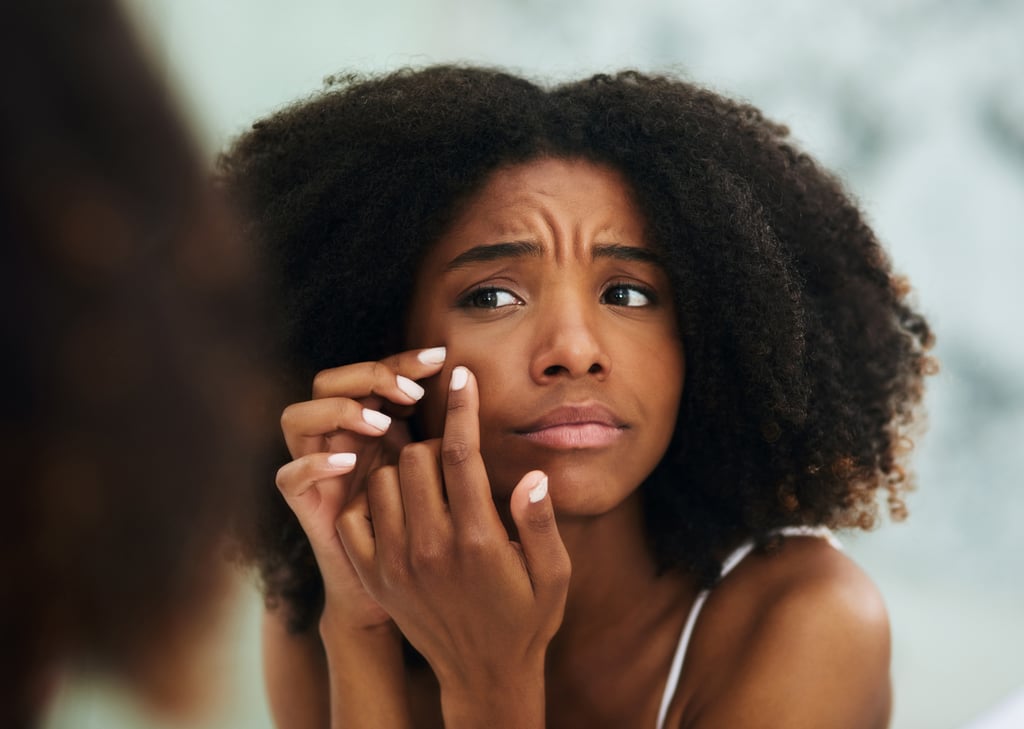
Retinoids, or topical antibiotics, are only going to be helpful "if there is an inflammation involved, in which the bacteria that's there is causing a cascade of inflammation," Dr. Schultz said. That means these formulas work best on red, white, and pus pimples — think of the classic "zit" you probably picture. If you're in the market for a topical, Dr. Schultz said that about 80 to 90 percent of doctors will prescribe Clindamycin. This medicine was first developed in the '70s as an oral antibiotic (more on those later), and it worked well, until a bacterial disease developed among patients. "It was causing a terrible intestinal infection, so they stopped using it orally and developed a topical product," he said.
This topical cream version is much more gentle on your stomach, since you're not actually ingesting it. Instead, you just get an effective leave-on acne fighter.
Along with Clindamycin, other popular prescription topicals are Erythromycin and Dapsone (also known as Aczone).
Oral Antibiotics
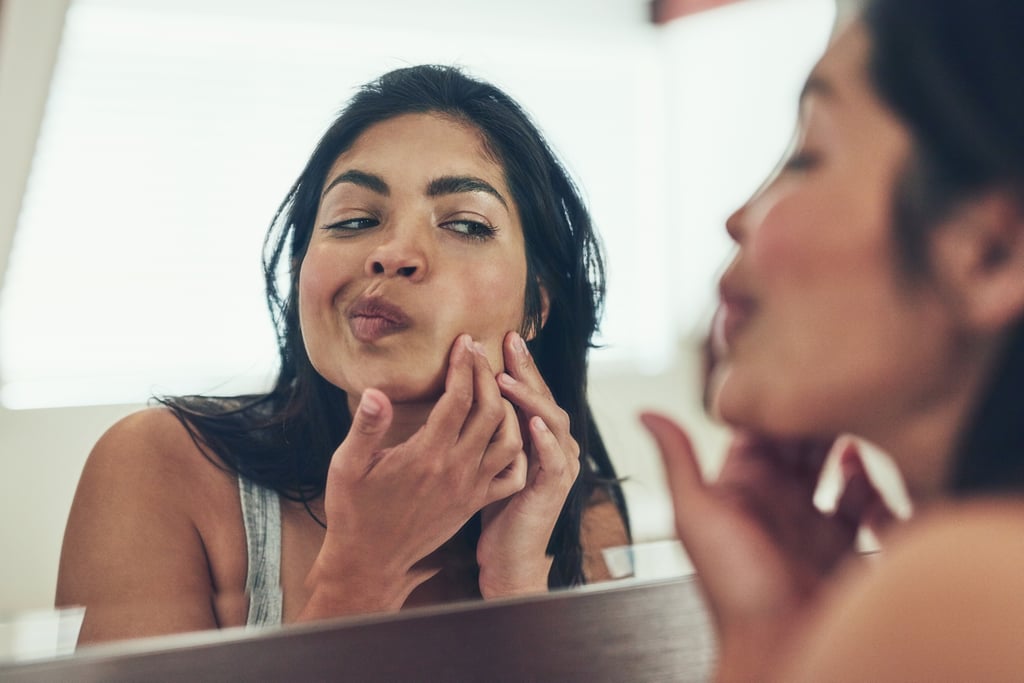
Not all oral antibiotics work in the same way — some attack the cell membrane of bacteria, and others kill its metabolism. "How they work is not nearly as important as whether they are bactericidal or bacteriostatic," Dr. Schultz said. The former means that the medicine will kill bacteria, and the latter means that it will just stop it from spreading.
While both work to quell acne, the dermatologist recommends opting for an oral that is bactericidal. That's because once you go off of the medicine, your acne won't come back. If you take a bacteriostatic pill, it will clear your face during the time you take it, but your acne could flare back up once you go off it.
"Every oral medication has side effects."
The most common group of antibiotics is the tetracycline family, which has two main derivatives: minocycline (commonly known as Minocin) and doxycycline (brand name Doryx). Another old-school type of antibiotic is cephalosporin, which is sold under the brand names Keflex and Duricef. These, unlike the others, don't cause sun sensitization or an upset stomach. Be sure to bring up any other medications you are taking to your doctor, and be prepared to perhaps use another form of contraception while you're on an oral antibiotic. Also, it's important to keep in mind that antibiotics are not a long-term solution, as prolonged use can cause bacterial resistance. "Every oral medication has side effects," Dr. Schultz explained. "There are no medications without side effects, so you've got to balance: 'What's my upside, what's my downside?'"
Birth Control
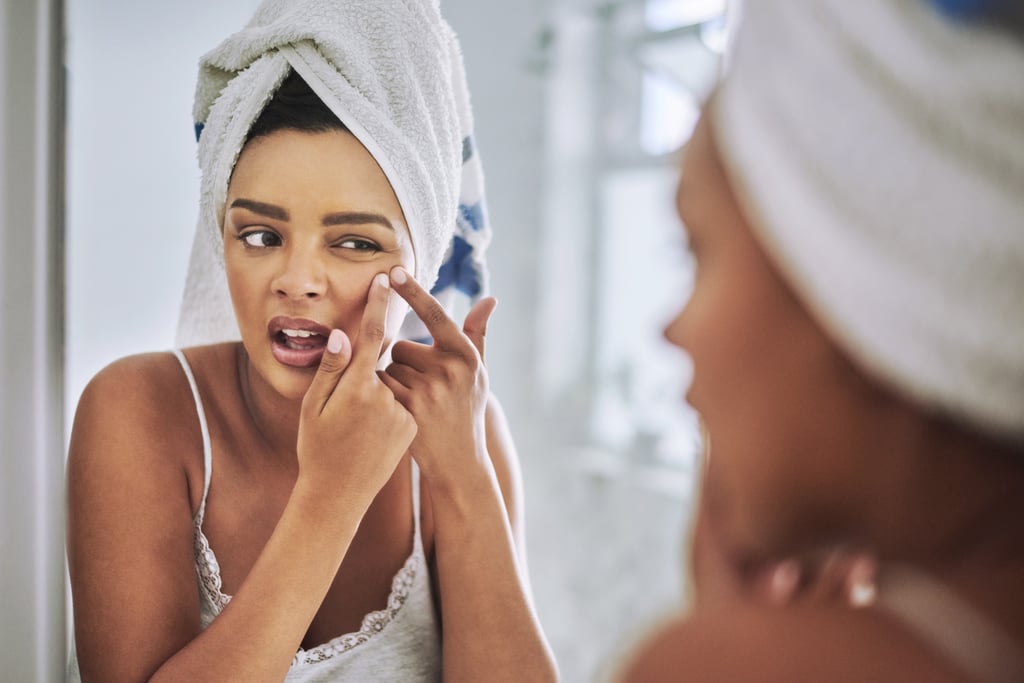
"The hormones in oral contraceptives work at interfering with the root cause of acne, which is the production of excess oil," Dr. Schultz said. Androgens — male hormones — are what stimulate oil production, so taking estrogen-based contraceptives works to quell this excess sebum. Because of that, this option works great at treating trickier, noninflammatory acne.
The first birth control pill that was approved to treat acne was Ortho Tri-Cyclen. Other main choices are Yasmin and Yaz. (When a birth control is "approved," it means that companies have spent the time and money to set up pricey clinical tests to prove their claims.) "Everybody who makes a birth control isn't necessarily interested in capturing the acne market, so they may not spend hundreds and thousand of dollars to do the test," said Dr. Schultz.
The only type of contraceptive pills that work to treat hormones are combination estrogen and progesterone options. The final verdict: "The pill has a much more varied effect on a person's body and system than other types of acne medications," he said. "But if you're going to take a birth control pill to not get pregnant, we may as well treat your acne at the same time."
Spironolactone
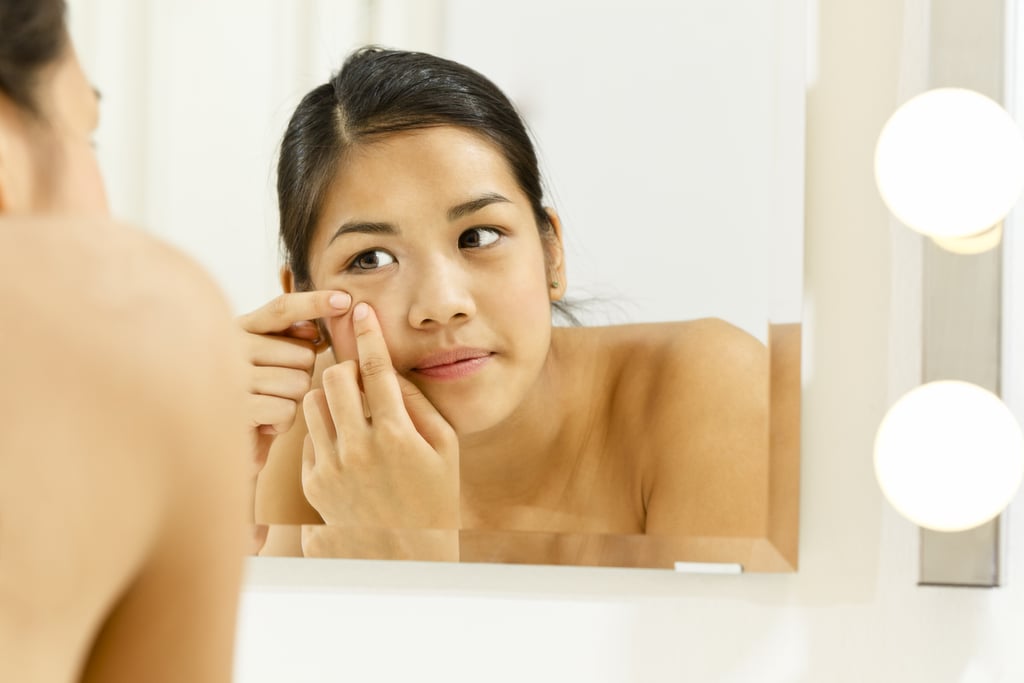
Often used to treat high cardiovascular issues, oral Spironolactone [4] also has the unique ability to block oil gland production. While not FDA-approved for acne (it treats the skin off-label), this is a great option for those who don't want to take Accutane [5]. One of the side effects of Spironolactone is increased urination. The medication also retains potassium, so you shouldn't eat foods that are rich in that mineral. As Dr. Schultz says, "You can't go bananas over bananas if you are taking Spironolactone." This can be a precursor to Accutane [6] — if you don't see results on Spironolactone, your doctor might give you a vitamin A derivative.
Accutane
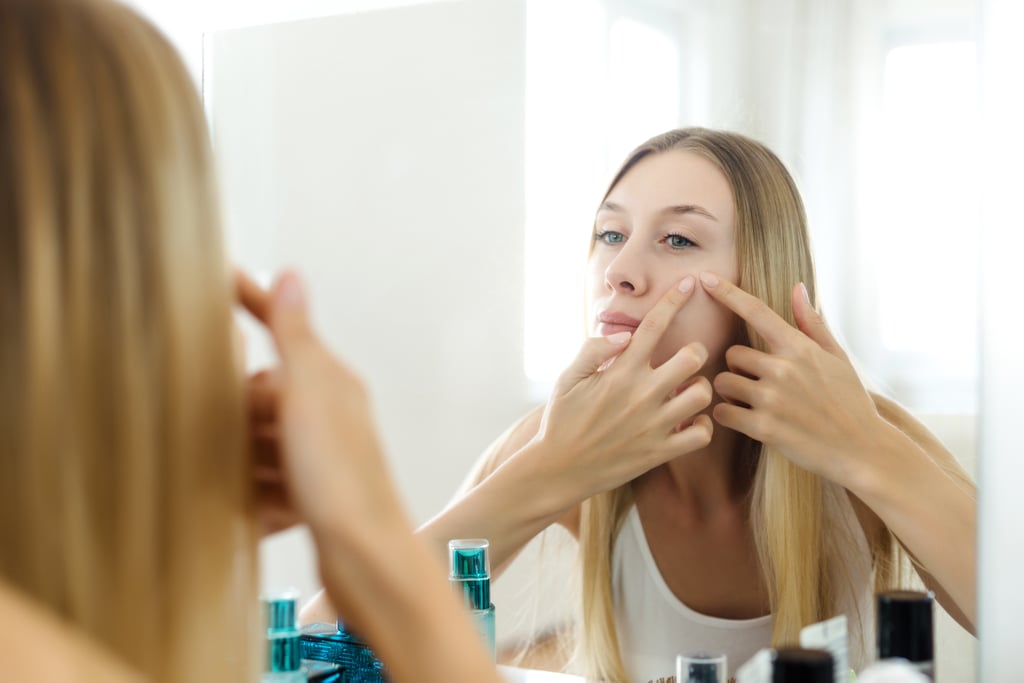
Accutane is widely controversial for its mood-changing reputation (though Dr. Schultz describes it as "one of the miracle drugs of the 20th century" for its ability to limit the amount of sebum produced by skin). While this medication should never be a first line of defence for anyone who suffers from acne, it is a great last-ditch product that can dramatically improve skin if you've already tried and failed at least two or three antibiotic options. If you have a history of severe depression or have ever been on antidepressant medications, you'll need to hit up a psychiatrist and dermatologist to ensure that Accutane is safe for you. Common side effects include joint pain, reversible hair loss, rashes, and dry skin. It should not be given to a preteen or someone who is still growing, as it can close growth plates.
"People should not be afraid of Accutane or oral medications for acne," Dr. Schultz insisted. "There's no reason you need to have acne."